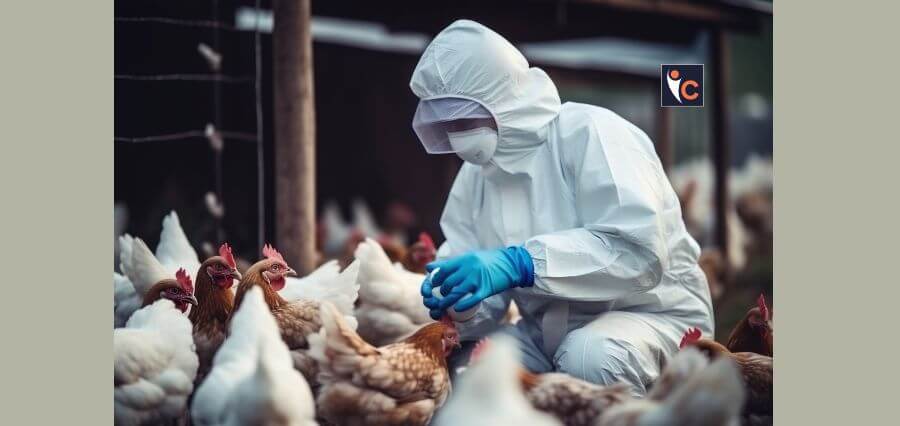As the avian influenza outbreak that is affecting dairy herds south of the border spreads, Canadian officials say they are taking all necessary precautions to safeguard the livestock industry in their nation. Since March, when dairy cows in Texas were found to be infected with the extremely dangerous form of A(H5N1), also known as bird flu, 68 herds across nine U.S. states have reported cases of infection.
A dairy farm worker in Michigan was the source of the virus’s third human case, which was discovered last week. Not a single instance of the illness has been discovered in Canadian cows thus far. However, there is a chance that it will manifest itself here, according to Dr. Martin Appelt, the Canadian Food Inspection Agency’s senior head of animal health programs.
“There is definitely a risk,” Appelt stated. And that puts, if that occurs, Canadian dairy producers in a difficult situation, which I completely understand. By stepping up testing and surveillance, the CFIA is ready for the potential emergence of avian flu cases in animals on this side of the border. Before they may cross the border, lactating dairy calves coming from the United States into Canada must have a negative test result for the virus. The CFIA is also testing milk that will be sold in stores to check for any signs of the virus.
The science of bird flu and how it spreads is still developing, but there are signs that the virus can spread quickly in nursing cows’ mammary glands, which could explain why dairy cows have shown to be especially susceptible to the illness. In dairy cattle, symptoms such as decreased milk production, thicker milk consistency, and appetite loss could be signs of illness.
Luckily for dairy farmers in Canada, bird flu seems to only inflict a mild, temporary disease. Furthermore, pasteurization, which is necessary for all Canadian milk sold in stores, has been demonstrated to successfully destroy the virus, even if traces of it have been discovered in the milk of infected American cows.
According to Appelt, this implies that commercially produced milk and milk products would continue to be safe to eat even if the disease was discovered in Canadian cows.
The Dairy Farmers of Canada trade association said in an email that it is keeping “close communication” with the CFIA while keeping an eye on the situation.
In a statement of its own, the Canadian Cattle Association, which advocates for ranchers and farmers raising cattle, stated that it is “watching this issue very closely.” According to Appelt, it’s yet unknown if the virus poses a risk to beef cattle. However, he said that the CFIA is putting together a thorough strategy that would broaden the scope of the organization’s surveillance operations beyond dairy cows and birds to include possible “other eventualities.”
Read More: Click Here















